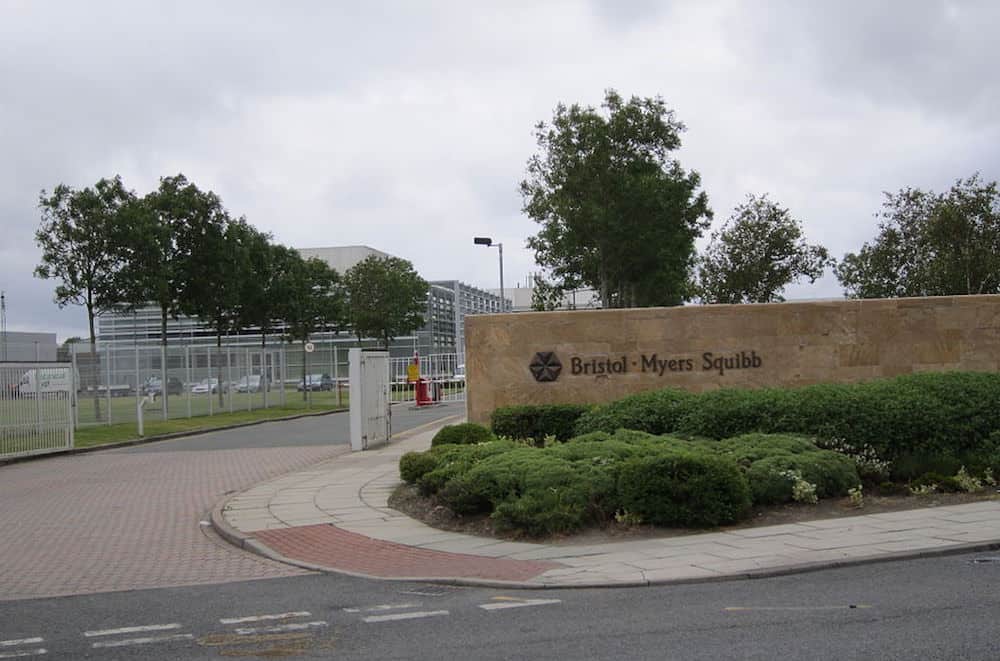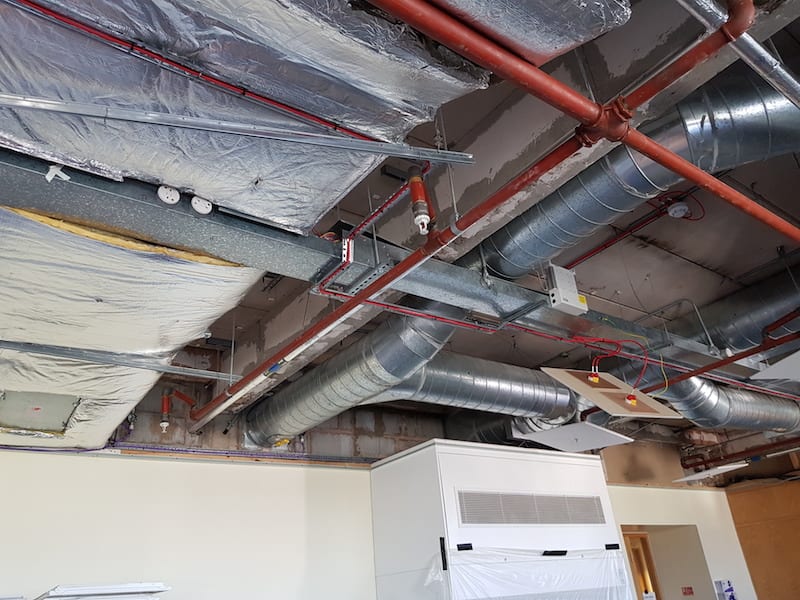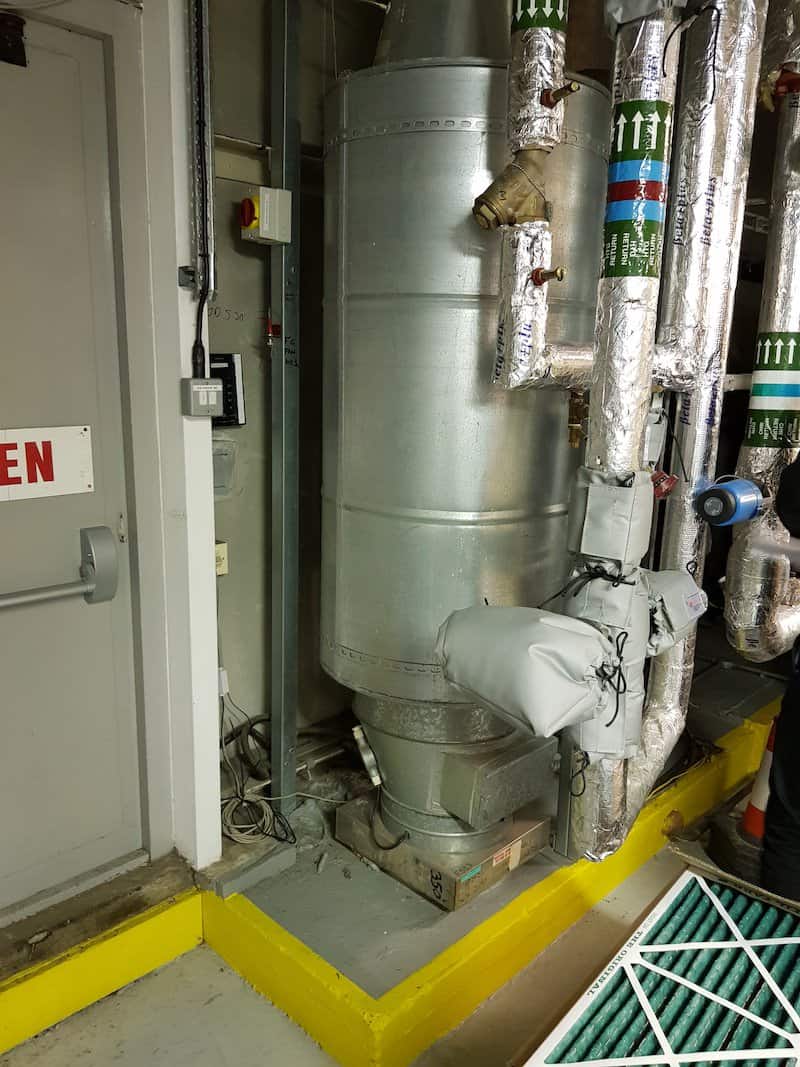
The Client: Bristol Myers Squibb
Service: Mechanical and Electrical
Project Value: £100k
Project Completion: 2018
 Our work on this project with Bristol Myers Squibb in Moreton, Wirral was for Laboratory Ventilation. It was a project that looks like it should be a relatively simple one, but because of the working environment and the demands of the system, had added layers of complication.
Our work on this project with Bristol Myers Squibb in Moreton, Wirral was for Laboratory Ventilation. It was a project that looks like it should be a relatively simple one, but because of the working environment and the demands of the system, had added layers of complication.
The Moreton site works on chemistry, manufacturing and control activities in collaboration with their other R&D labs across the world. Their tasks include the investigation of new medicinal compounds to ascertain how they can best be turned into medicines.
The project was for the design, manufacture, supply and installation of a new solvent extract bench and a fume cupboard, within the Communications Sciences and Disorders (CSD) and Robotics Laboratory. As part of the installation, our work also included the modification and build of ductwork systems, controls, and fans for air movement.

The Kimpton team also completed the building work for this project, as well as the electrical installation, with the latter including an extension to the existing electrical provision in the areas around the new solvent extract bench position.
The design of the solvent extract bench was to complement the existing provision with the addition of mobile units to allow more flexible working within the lab environment. From the integral extract grilles within the bench a common extract duct was installed to connect to a new centrifugal fan located in the plant room, with the fan discharging externally above the roof level of the building.

The supply and extract systems were also modified to accommodate the additional systems and designed to maintain a negative pressure condition within the working area. Laboratory ventilation often uses a negative air pressure system, where the internal air is forced out of the laboratory. This allows for air to be induced into the extract system from other inlets. This is an isolation technique used in research and some hospital environments to ensure contaminated air is contained within that lab and cannot cross-contaminate other working spaces nearby.
If you would like to discuss any of our services, please call 0151 343 1963 or complete the form below and we will be in touch shortly.